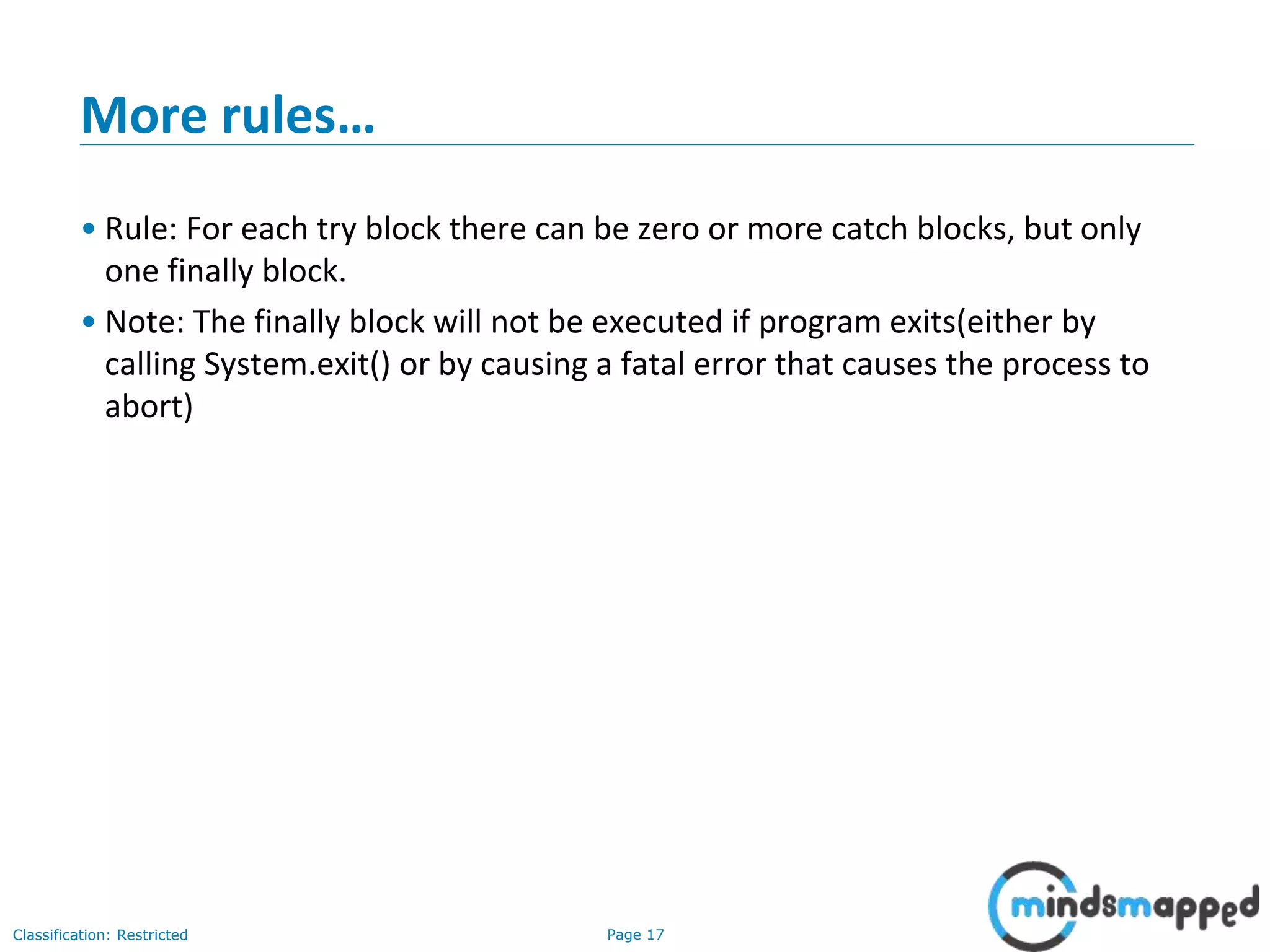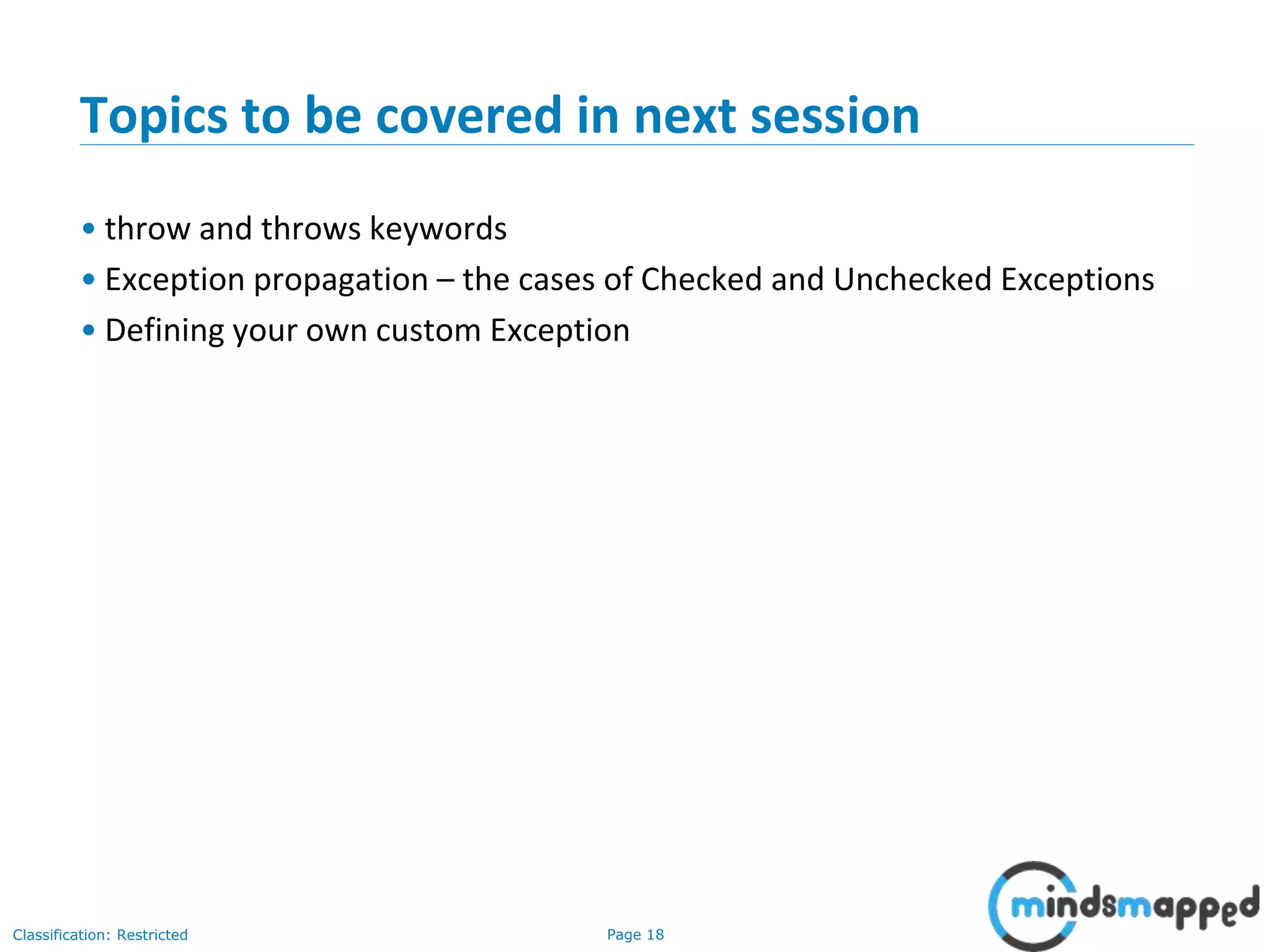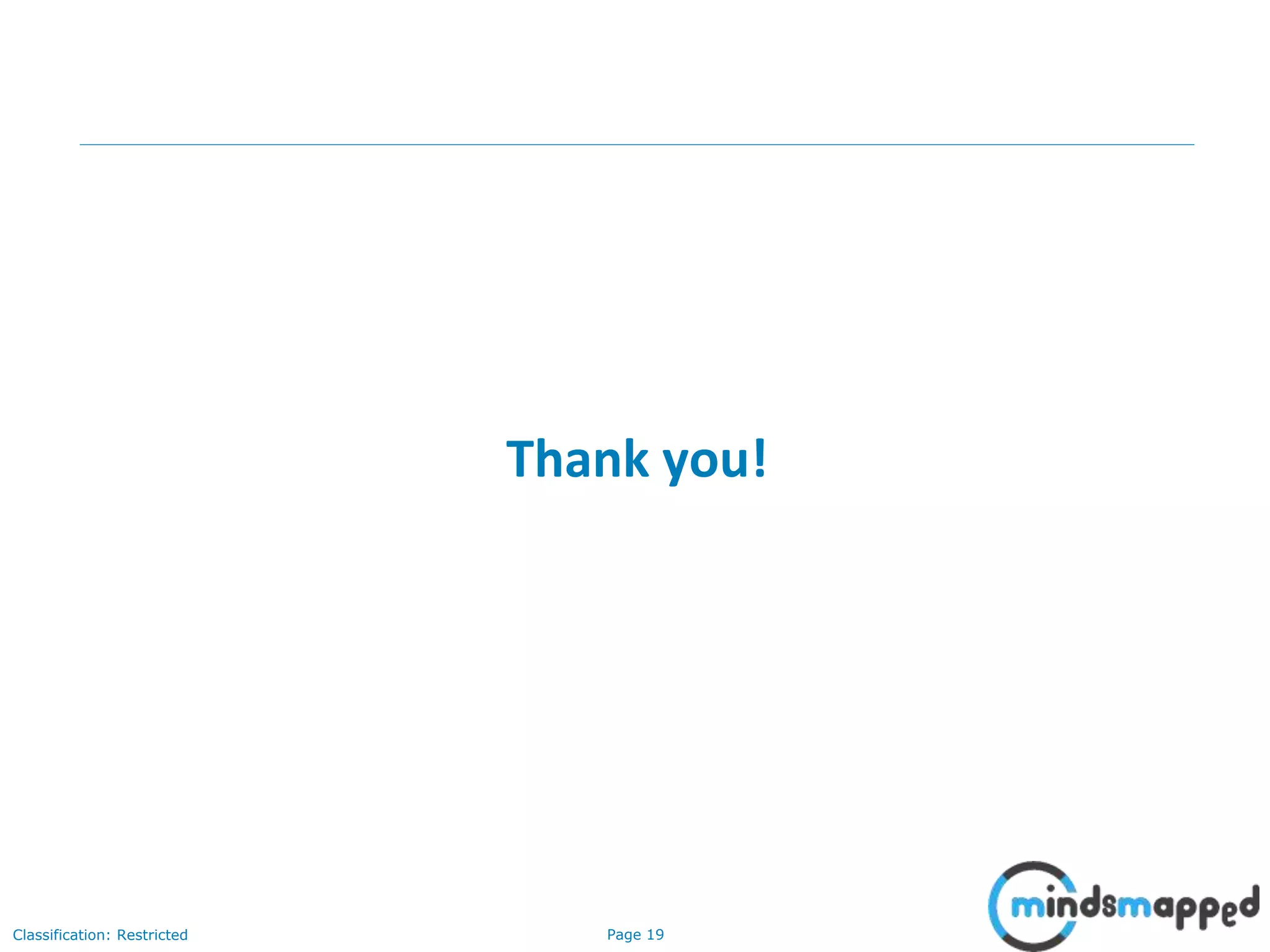The document provides an overview of exception handling in Java, detailing the types of exceptions such as checked, unchecked, and errors. It illustrates exception handling mechanisms, including the use of keywords like try, catch, finally, throw, and throws with examples. Additionally, it discusses rules for catch blocks and introduces topics for future sessions on custom exceptions and exception propagation.
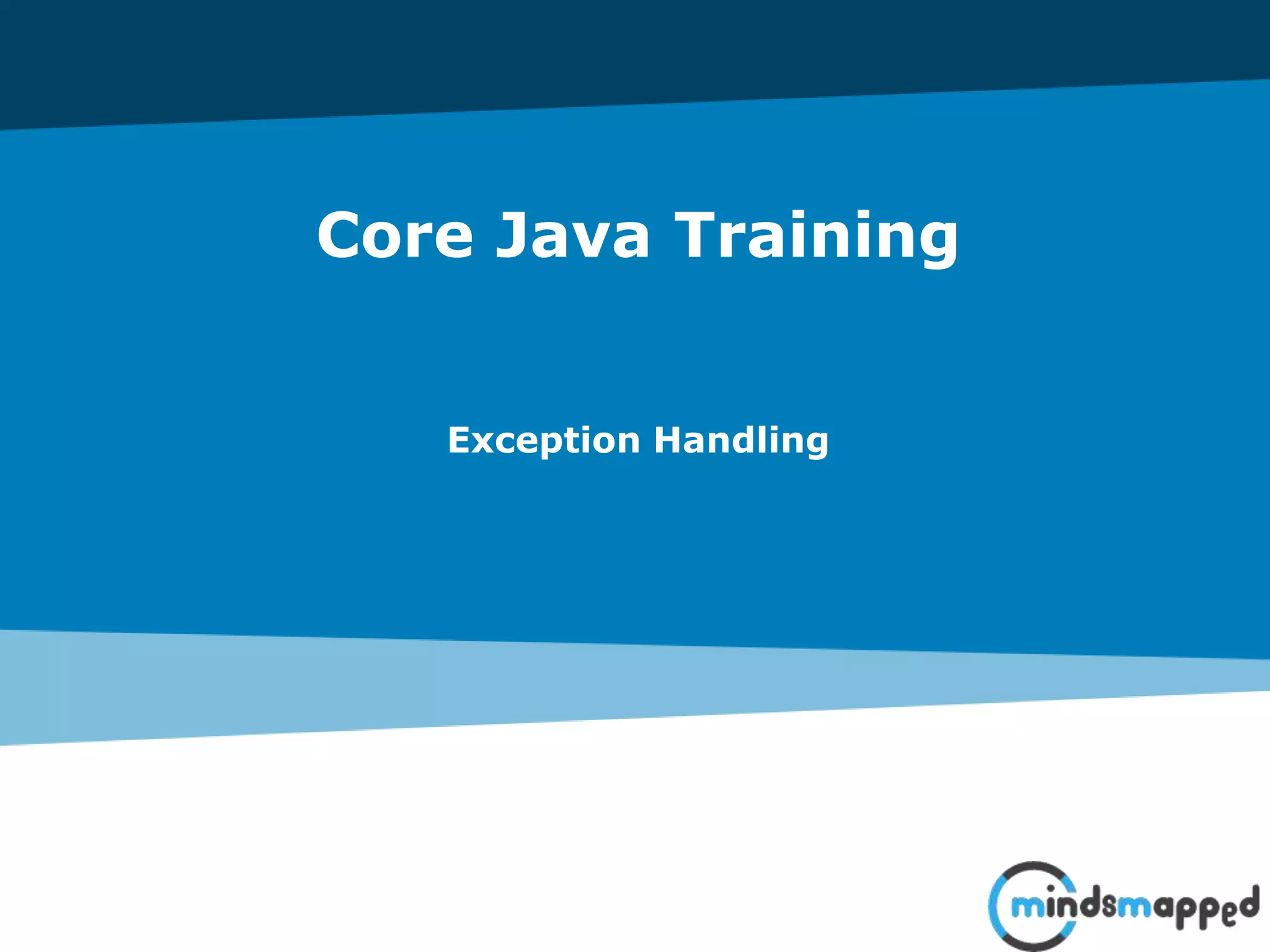
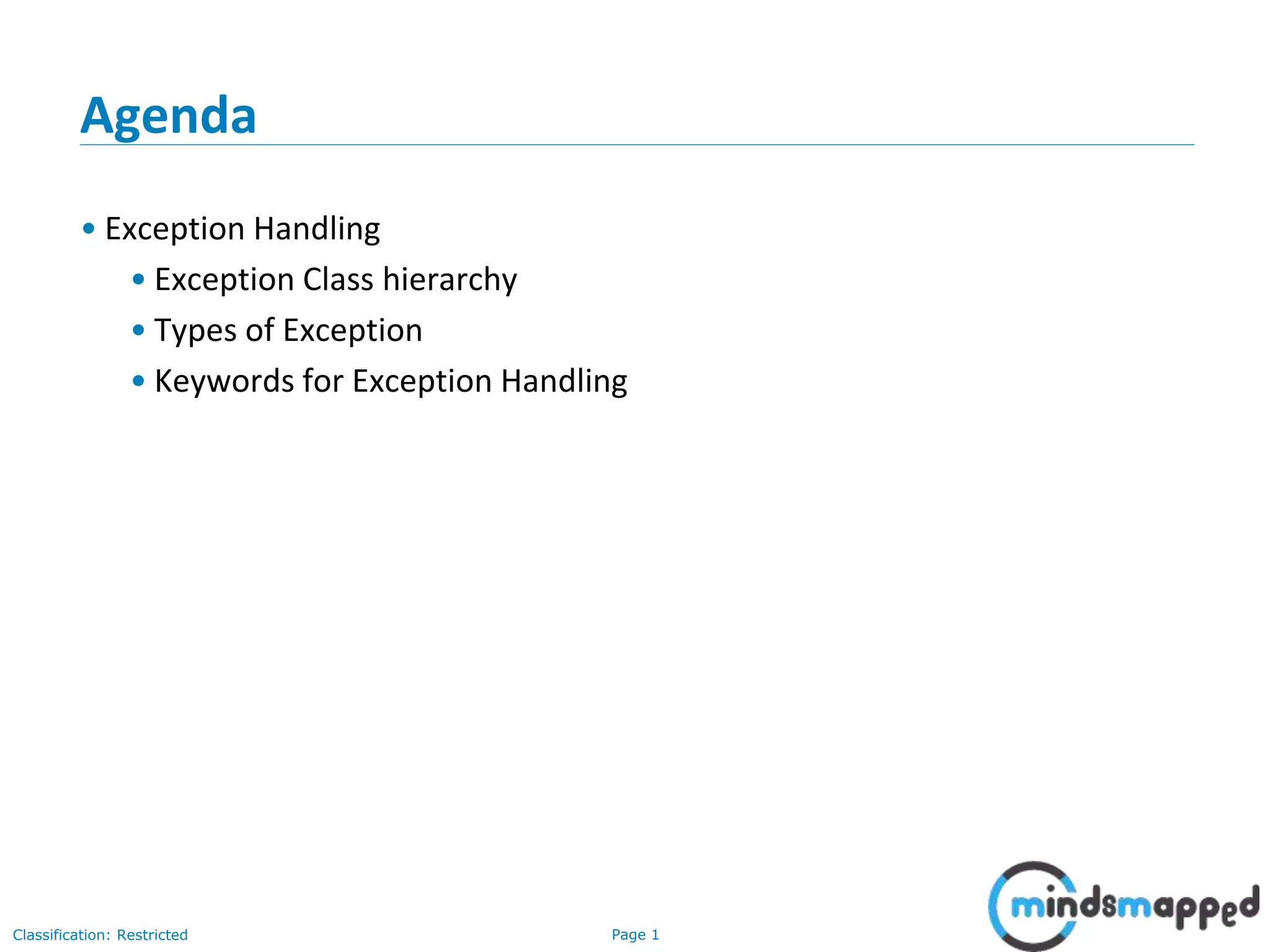
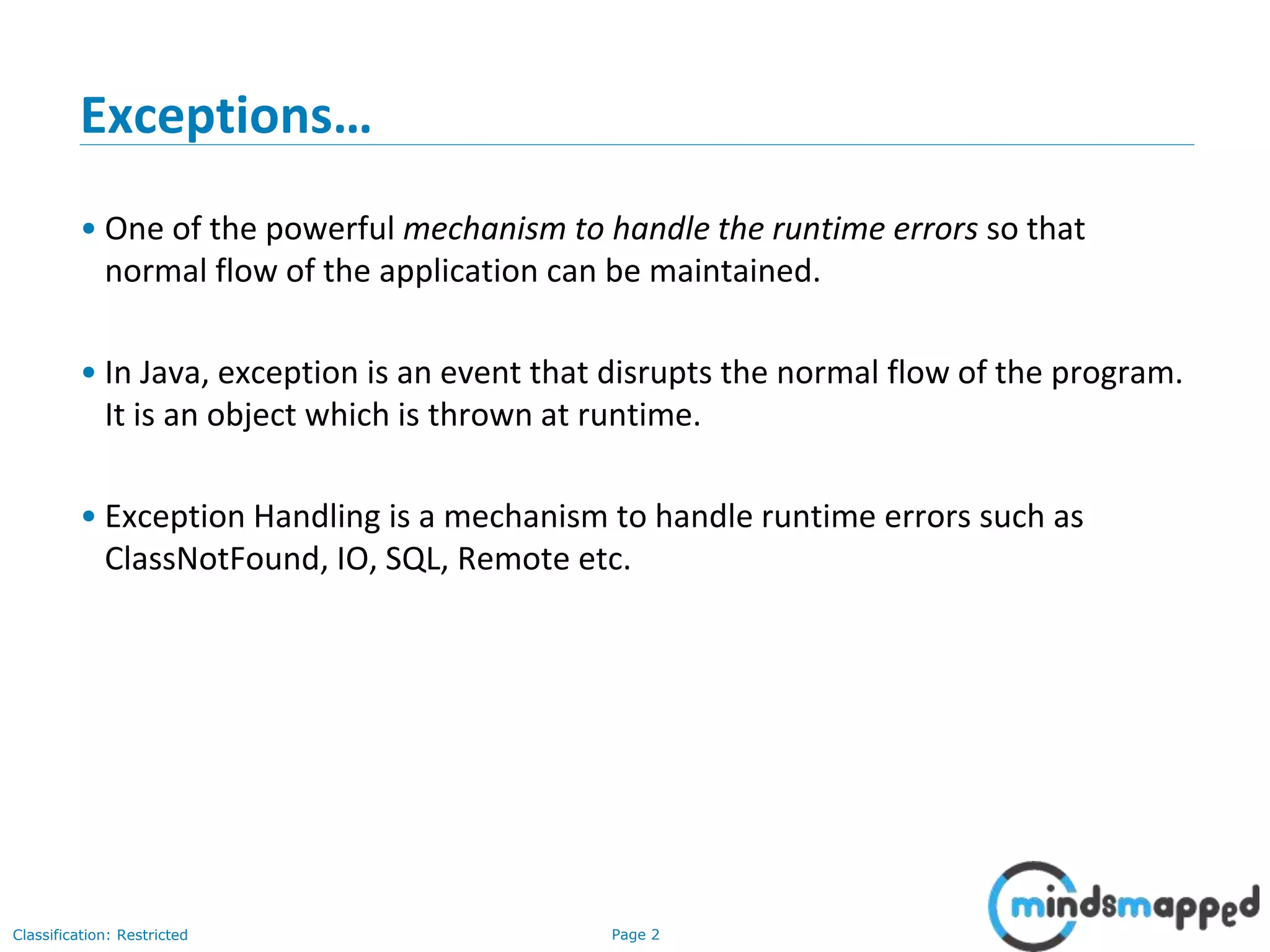
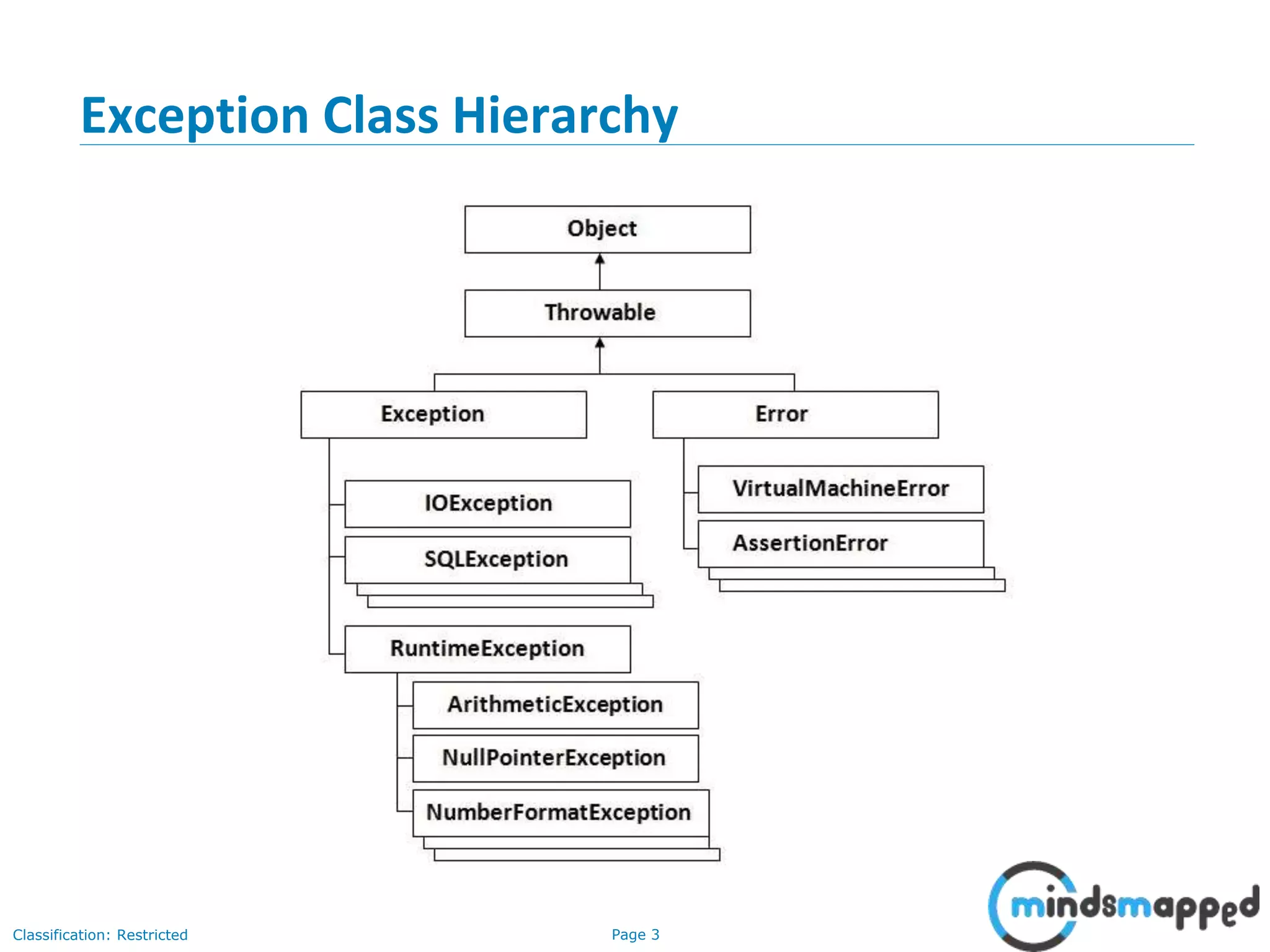
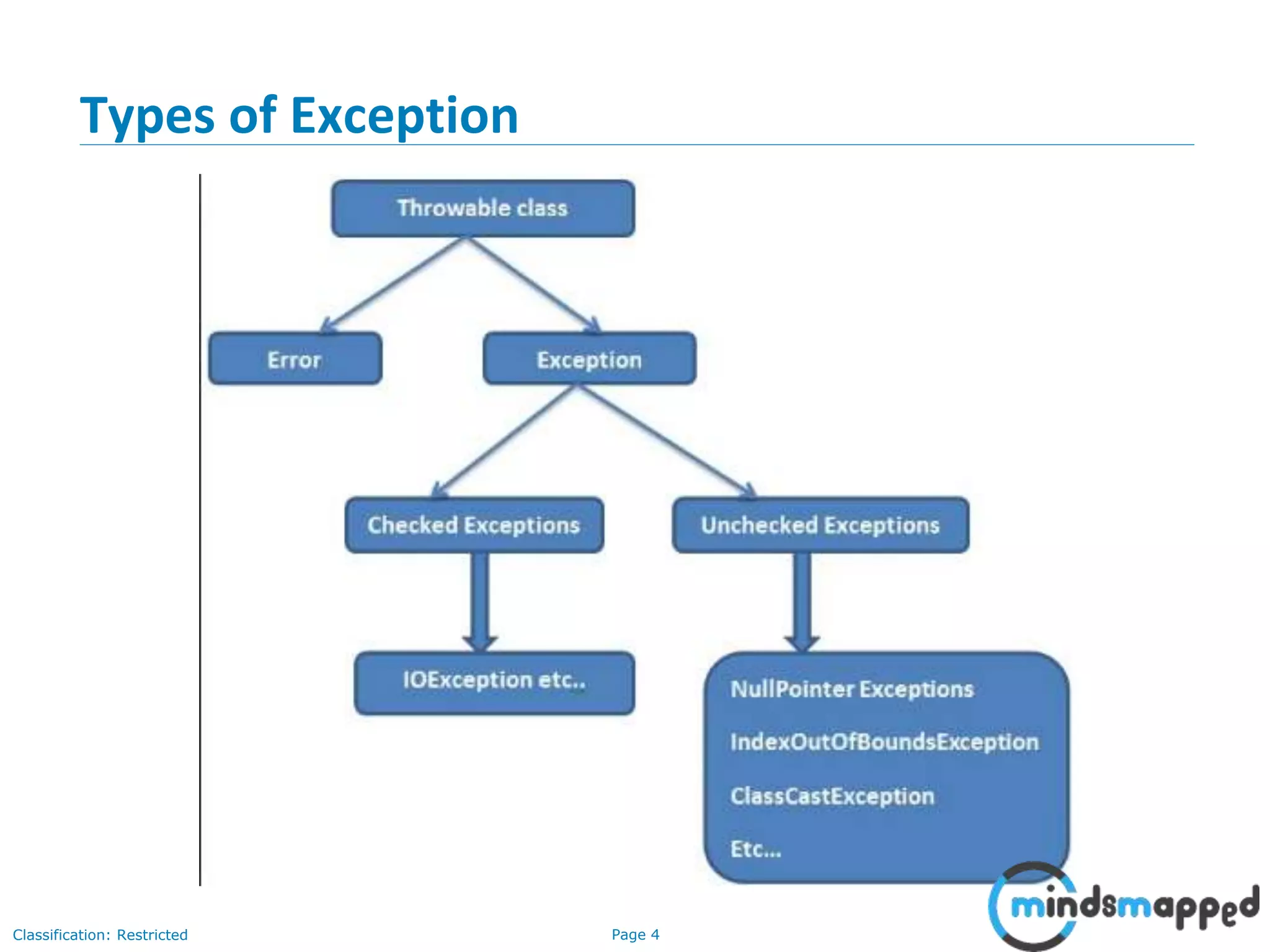
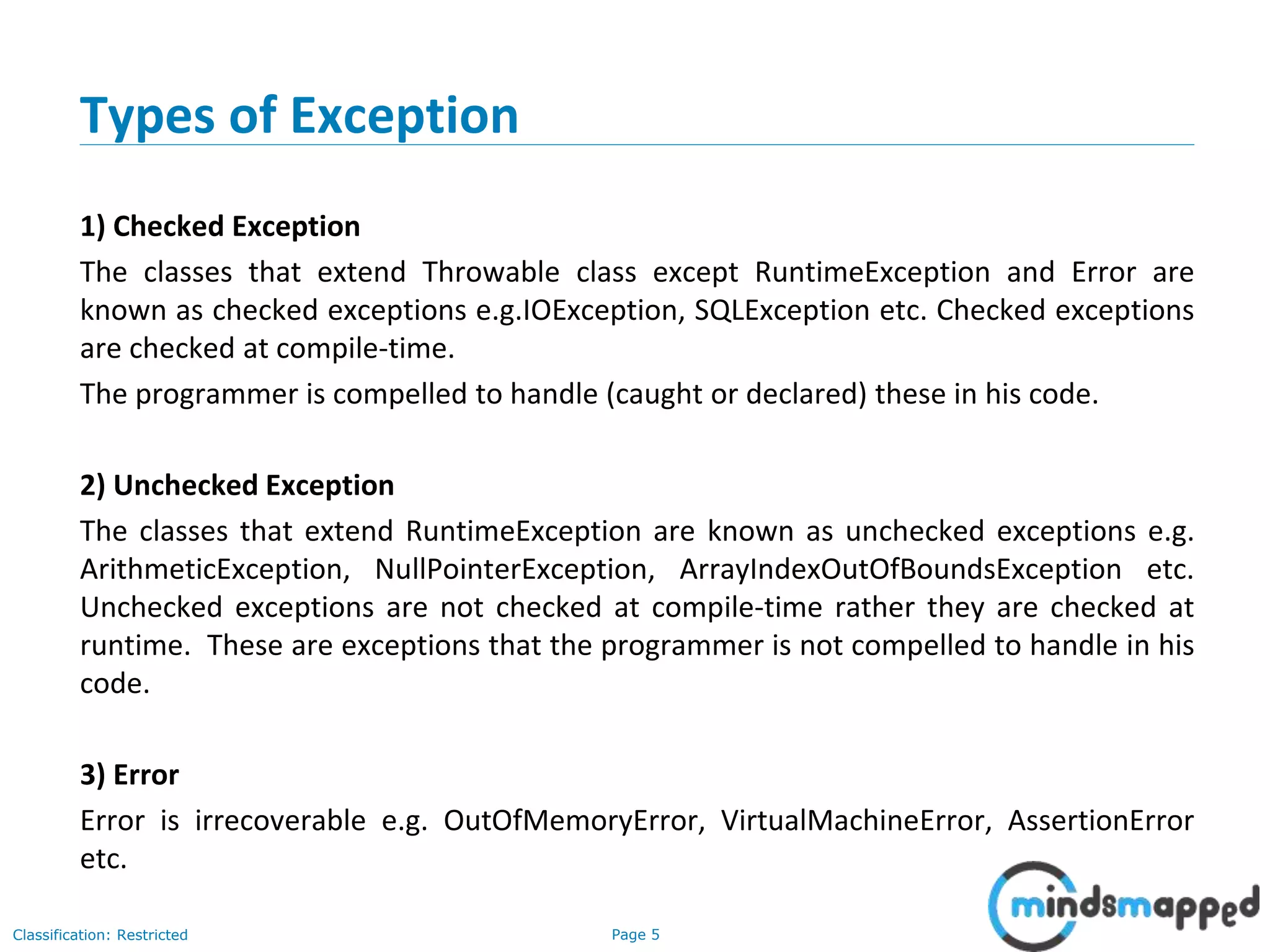
![Page 6Classification: Restricted Examples • ArithmeticException int a=50/0;//ArithmeticException • NullPointerException String s=null; System.out.println(s.length());//NullPointerException • NumberFormatException String s="abc"; int i=Integer.parseInt(s);//NumberFormatException • ArrayIndexOutOfBoundsException int a[]=new int[5]; a[10]=50; //ArrayIndexOutOfBoundsException](https://image.slidesharecdn.com/session12-exceptionhandling-part1-slides-180817165429/75/Exception-Handling-Part-1-7-2048.jpg)
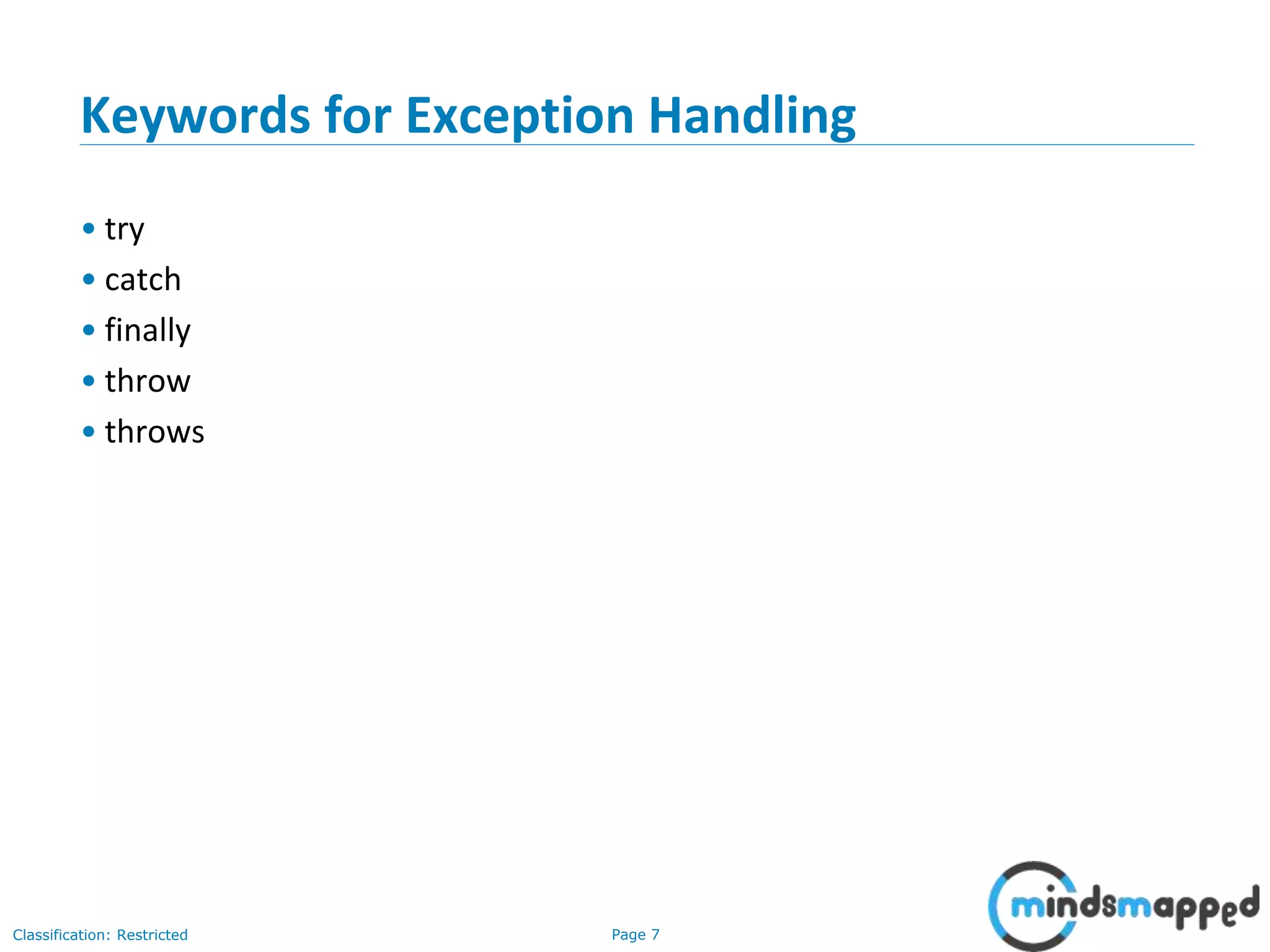
![Page 8Classification: Restricted Problem without exception handling public class Testtrycatch1{ public static void main(String args[]){ int data=50/0;//may throw exception System.out.println("rest of the code..."); } }](https://image.slidesharecdn.com/session12-exceptionhandling-part1-slides-180817165429/75/Exception-Handling-Part-1-9-2048.jpg)
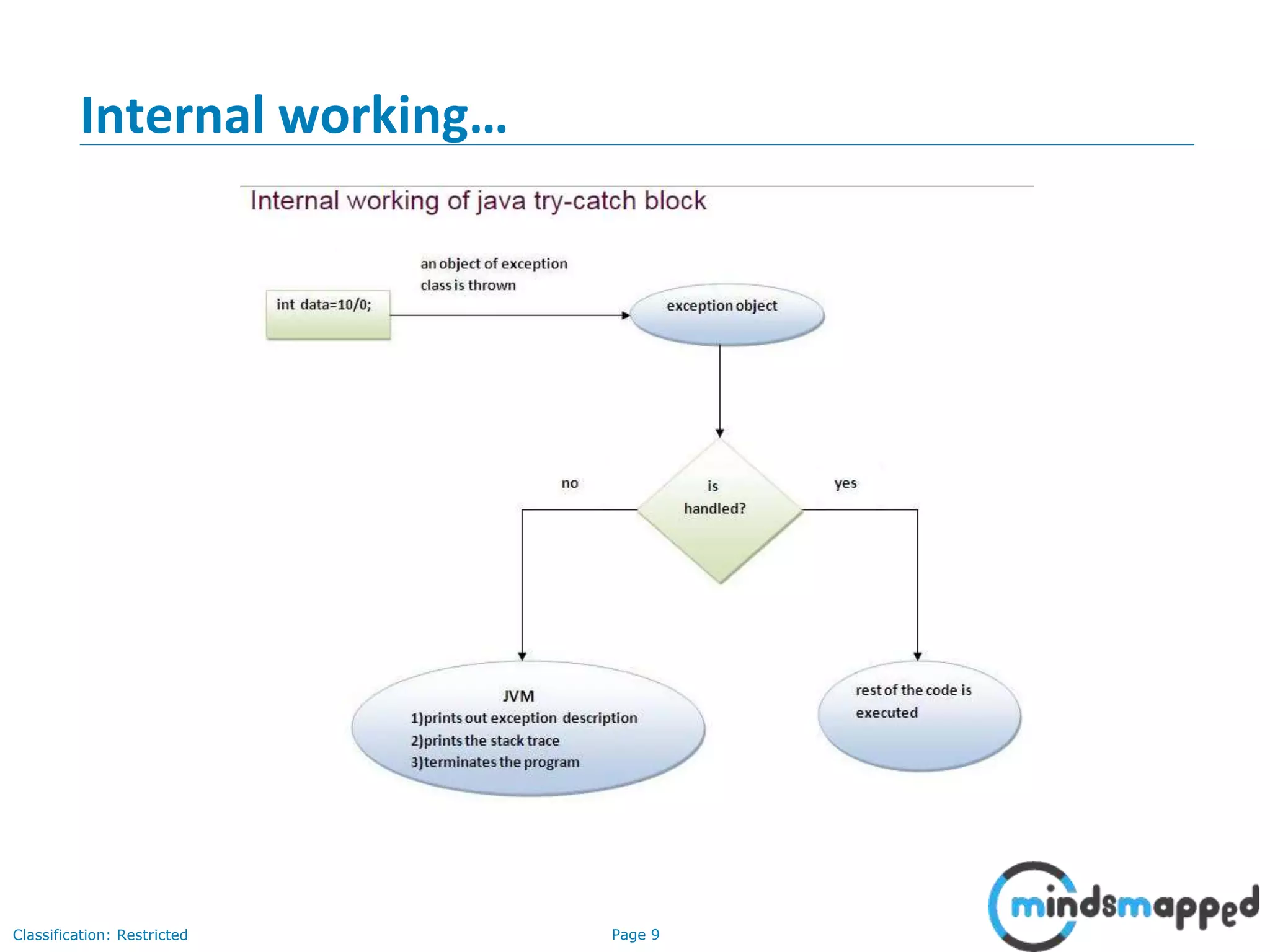
![Page 10Classification: Restricted Solution by exception handling public class Testtrycatch2{ public static void main(String args[]){ try{ int data=50/0; }catch(ArithmeticException e){System.out.println(e);} System.out.println("rest of the code..."); } }](https://image.slidesharecdn.com/session12-exceptionhandling-part1-slides-180817165429/75/Exception-Handling-Part-1-11-2048.jpg)
![Page 11Classification: Restricted Example… public class TestMultipleCatchBlock{ public static void main(String args[]){ try{ int a[]=new int[5]; a[5]=30/0; } catch(ArithmeticException e){System.out.println("task1 is completed");} catch(ArrayIndexOutOfBoundsException e){System.out.println("task 2 completed");} catch(Exception e){System.out.println("common task completed");} System.out.println("rest of the code..."); } } Rule: At a time only one Exception occurs and at a time only one catch block is executed. Rule: All catch blocks must be ordered from most specific to most general i.e. catch for ArithmeticException must come before catch for Exception.](https://image.slidesharecdn.com/session12-exceptionhandling-part1-slides-180817165429/75/Exception-Handling-Part-1-12-2048.jpg)
![Page 12Classification: Restricted Nested try catch blocks… class Excep6{ public static void main(String args[]){ try{ try{ System.out.println("going to divide"); int b =39/0; }catch(ArithmeticException e){System.out.println(e);} try{ int a[]=new int[5]; a[5]=4; }catch(ArrayIndexOutOfBoundsException e){System.out.println(e);} System.out.println("other statement); }catch(Exception e){System.out.println("handeled");} System.out.println("normal flow.."); } }](https://image.slidesharecdn.com/session12-exceptionhandling-part1-slides-180817165429/75/Exception-Handling-Part-1-13-2048.jpg)
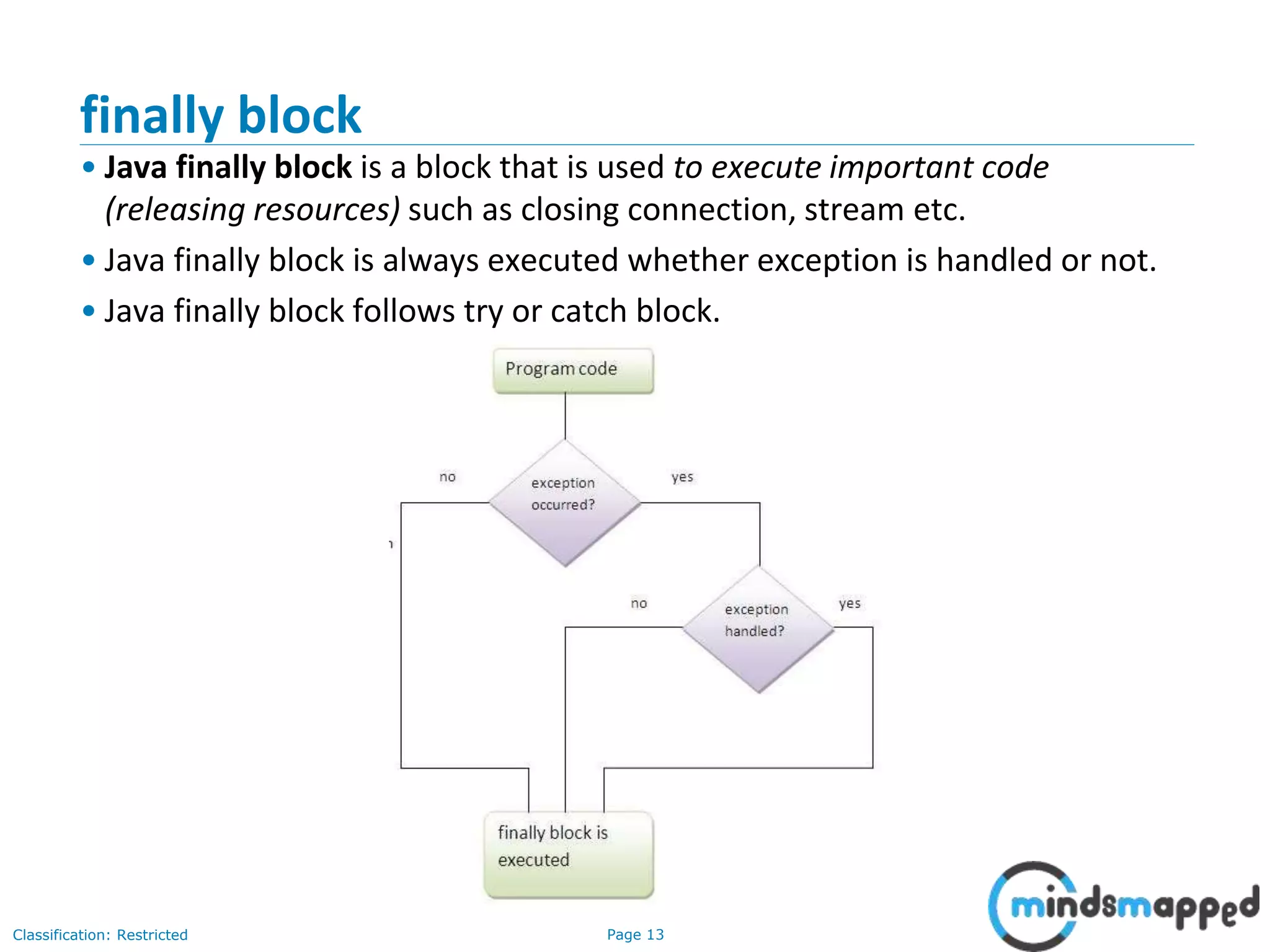
![Page 14Classification: Restricted Examples… class TestFinallyBlock{ public static void main(String args[]){ try{ int data=25/5; System.out.println(data); } catch(NullPointerException e){System.out.println(e);} finally{System.out.println("finally block is always executed");} System.out.println("rest of the code..."); } }](https://image.slidesharecdn.com/session12-exceptionhandling-part1-slides-180817165429/75/Exception-Handling-Part-1-15-2048.jpg)
![Page 15Classification: Restricted Example: Exception occurs, not handled…but finally is executed. class TestFinallyBlock1{ public static void main(String args[]){ try{ int data=25/0; System.out.println(data); } catch(NullPointerException e){System.out.println(e);} finally{System.out.println("finally block is always executed");} System.out.println("rest of the code..."); } }](https://image.slidesharecdn.com/session12-exceptionhandling-part1-slides-180817165429/75/Exception-Handling-Part-1-16-2048.jpg)
![Page 16Classification: Restricted Example: Exception occurs and handled public class TestFinallyBlock2{ public static void main(String args[]){ try{ int data=25/0; System.out.println(data); } catch(ArithmeticException e){System.out.println(e);} finally{System.out.println("finally block is always executed");} System.out.println("rest of the code..."); } }](https://image.slidesharecdn.com/session12-exceptionhandling-part1-slides-180817165429/75/Exception-Handling-Part-1-17-2048.jpg)
